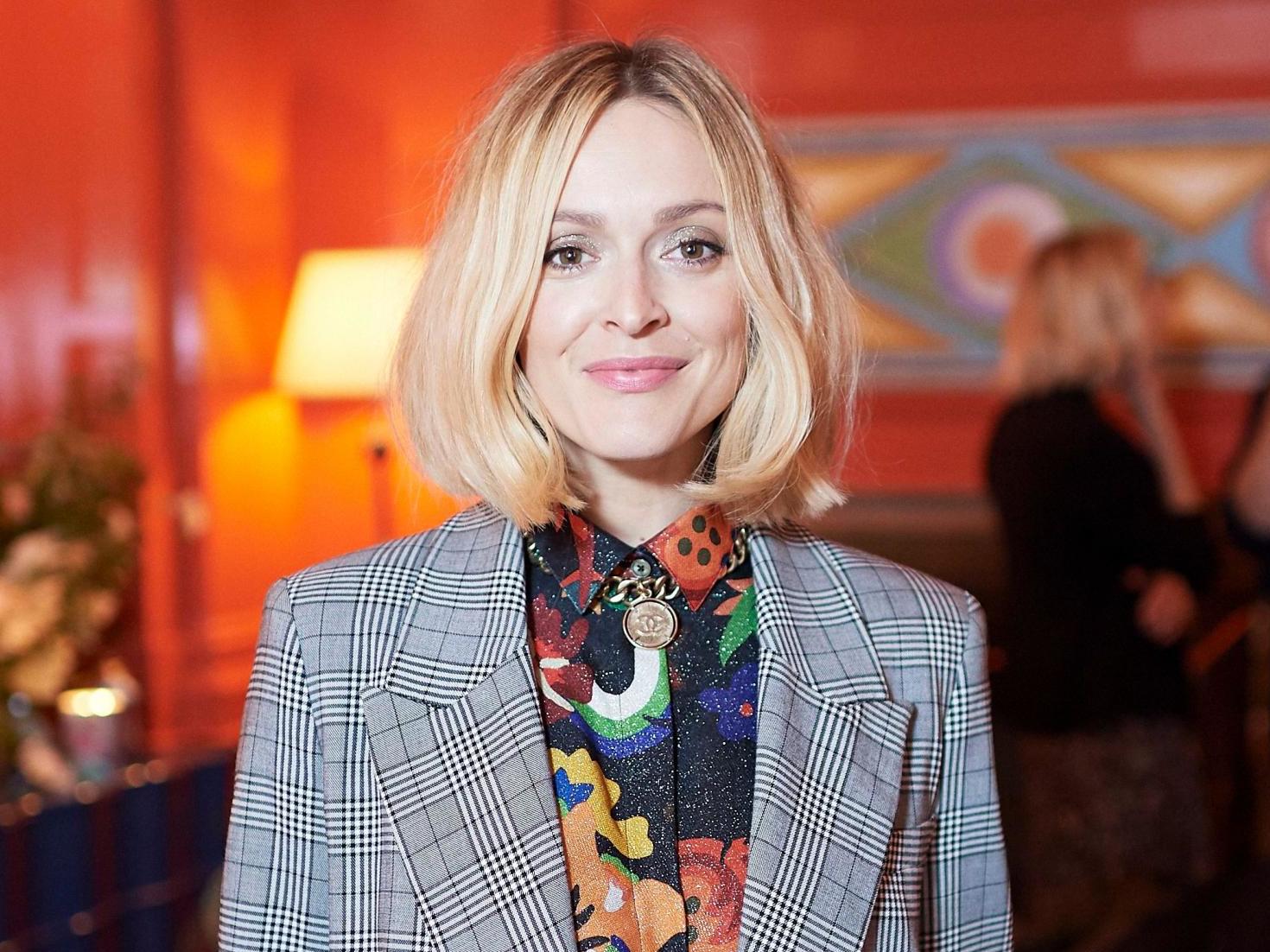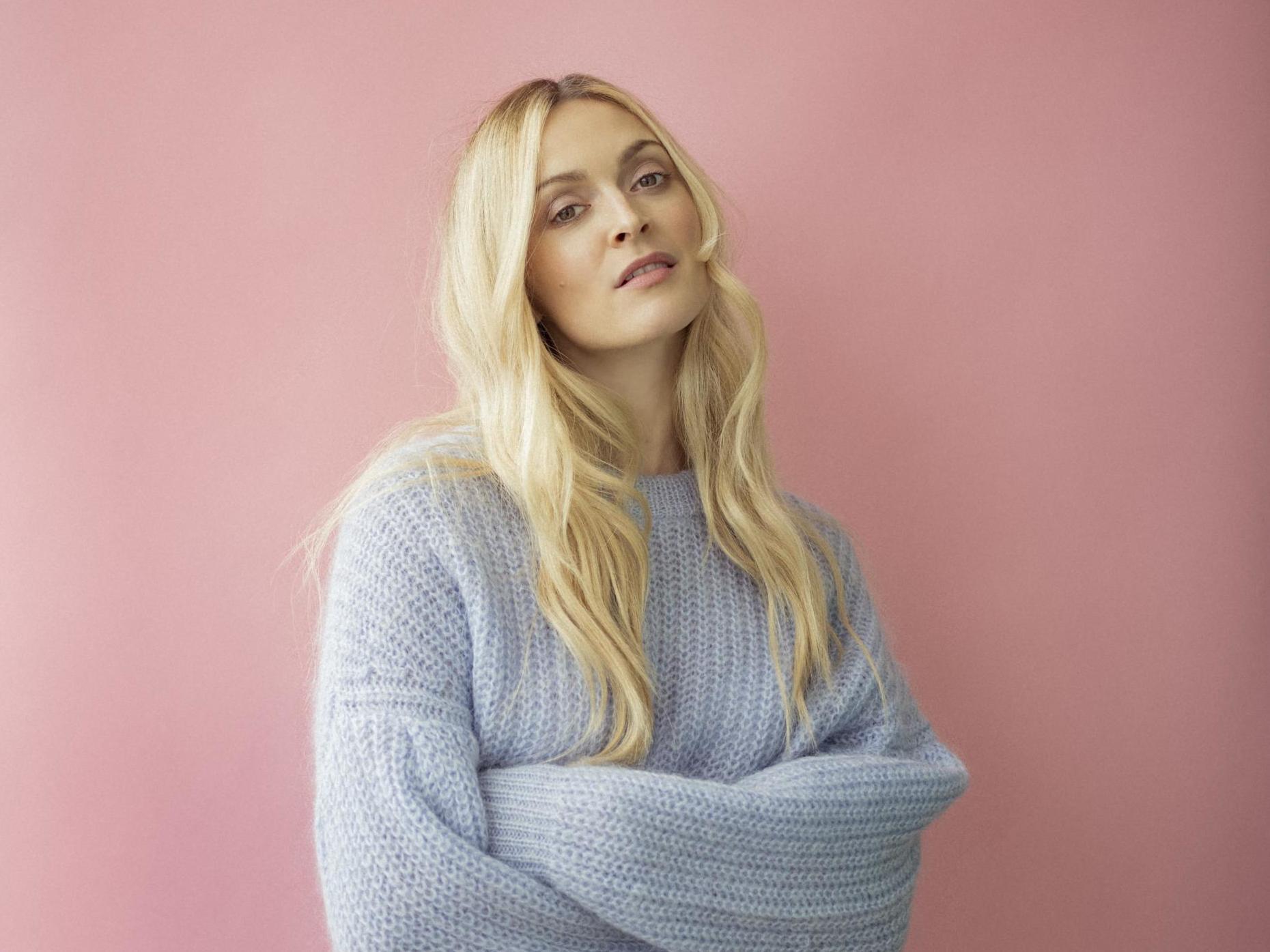Fearne Cotton interview: ‘Panic attacks would send shockwaves coursing through my body’
Coronavirus has had a huge impact on people's mental health. Fearne Cotton speaks to Sabrina Barr about how she and her family have coped with lockdown, anxiety attacks and finding happiness


Your support helps us to tell the story
From reproductive rights to climate change to Big Tech, The Independent is on the ground when the story is developing. Whether it's investigating the financials of Elon Musk's pro-Trump PAC or producing our latest documentary, 'The A Word', which shines a light on the American women fighting for reproductive rights, we know how important it is to parse out the facts from the messaging.
At such a critical moment in US history, we need reporters on the ground. Your donation allows us to keep sending journalists to speak to both sides of the story.
The Independent is trusted by Americans across the entire political spectrum. And unlike many other quality news outlets, we choose not to lock Americans out of our reporting and analysis with paywalls. We believe quality journalism should be available to everyone, paid for by those who can afford it.
Your support makes all the difference.While mental health has become an increasingly widespread topic of conversation over the past few years, the coronavirus pandemic, and the stringent lockdown that followed, has led to many people feeling particularly anxious and stressed, with one in five adults stating that they believe they are experiencing anxiety for the first time.
Television and radio presenter Fearne Cotton, formerly of Radio 1, has spoken about her mental health for years, regularly opening up about anxiety, depression and learning to cope with panic attacks.
In addition to keeping her chart-topping Happy Place podcast, the 38-year-old has also announced the launch of an online Happy Place Festival, a month-long event that will offer daily activities including meditation, craft workshops, talks and celebrity interviews.
Speaking to The Independent, Cotton reveals the difficulties she and her husband, musician Jesse Wood, have faced keeping their children calm during a time of heightened anxiety, what it was like to experience a panic attack for the first time and the importance of choosing who you follow on social media carefully.
How have you and your family found lockdown?
“Rex [aged 7] is full of energy and is very sensitive. It’s affecting him in quite a physical sense, his sleep’s been horrific for months. He was having night terrors at first, and now it’s kind of just a general anxiety.
“With Honey [aged 4], we’ll walk down the street and she’ll go, ‘Mummy there’s a person coming, quick cross the road!’ You don't want this to be something that your kids carry forever. It’s difficult for parents to try and talk to their kids about what’s going on, but we’re trying.
“I think for any couple, being at home together all the time – as loved up as you might be – is a challenge. Jesse and I are navigating that in the best way we can, which involves a lot of talking. You have a lot of guilt where you don’t feel you’re doing the best job. We’ve just been dealing with it as best we can and also supporting the people we know need more help than we do. I think my anxiety is probably a bit worse than normal, but then again my insomnia’s not around at the moment, touch wood.”
Is lockdown forcing more parents to think about their child's mental health?
“That may be the case – certainly not in this house, because I spend my life thinking and talking about mental health. We try to be outside as much as possible. I think for all of our mental health, that is one of the best ways to keep in check.
People should stop buying into the myth that if you’re in the public eye, everything goes swimmingly in life...
“But I don’t think it’s normal for anyone to be with your family 24/7 in one space. It’s really full on. I have probably been slightly more on it with my kids, mainly because Rex has had this reaction to the pandemic. I have been getting him to try stuff that I do for myself, which I hadn’t before. Your kids are often quite reluctant to speak to you, so I think having an outsider for them to talk to is quite handy.
“I personally think a lot needs to change with how children are schooled. I think there are some parts of the schooling system that have been improved, but there needs to be a lot more done in that space for kids and their general wellbeing.
“If you think of the effort that’s put into physical wellness and extracurricular sporting activities, there’s tons applied for that. But when you look at what’s there for kids’ mental agility or for them to have a better understanding of emotional intelligence, I don’t think there [is much]. At all. The mental side still seems to be lagging. I do hope that changes.”
In April, you wrote on Instagram that you had experienced a panic attack for the first time in months. Why did you share that?
“I’m not usually a fan of sharing super personal things on Instagram. I’m happy to talk about them on the podcast, in books, in interviews. But Instagram for me always feels like a strange place to do it. I think it’s because it’s this open forum for everybody to also have a say, which can be quite unnerving. It just feels jarring to me, seeing a picture of someone looking depressed or sad on Instagram without the time and space to seriously explain it. That’s why books and podcasts have felt right to me, because I can really articulate what the hell I mean. I usually keep Instagram for leading people to the right people, but less about my experience because I prefer that to be understood properly.
“[When I shared my post], I didn’t underestimate how many people out there would have experienced the same, but I certainly didn’t think people in my life would have. Friends of mine that I had seen as very robust said, ‘I used to have them all the time'. That definitely acted as a big slice of solace to know that there were other people to talk to.
“The difficulty about Instagram is that it can look like you’re fishing for everyone to go, ‘Oh you poor thing, how are you coping.’ That’s the last thing I want. I’m only posting so that people can stop buying into the myth that if you’re in the public eye, everything goes swimmingly in life. I really think that is a dangerous myth to throw about.”
When did you experience your first panic attack?
“It might have been in 2017. After a long period of depression, I was on medication. I looked at ways to change my life and I started to feel a little better. Not like, ‘I had depression, now I’m cured’, but I started to incrementally find a bit more peace with what was going on in my life.
I would lie awake and have panic attacks that would last all night...
“The panic attacks were sort of this delayed reaction. It was like an alarm bell going, ‘You haven’t done enough work yet.’ It was like a kind of a post-traumatic stress situation, where these shockwaves would course through my body and make me feel like I was going to pass out. The first one I had unfortunately was in a car on a motorway. I didn’t know what the hell was going on, I’d never had one before.
“I got them thick and fast for up to six months after that. Work became a real trigger, because that had been a part of the depression as well, just feeling really tired of being judged and misunderstood. Then I started getting them at night. I would lie awake and have panic attacks that would last all night.
“I made some more changes, and then I didn’t have them for a long while. I’ve had a few in the last six months, but not like they used to be. My most impactful way of dealing with it is to make big changes, which is not easy. I always meditate, do yoga, go for a run, go outside, read good books, don’t watch awful stuff on TV that makes me feel bad. I just manage it in stages.”

Do you feel social media platforms have a duty to look after the mental wellbeing of their users?
“The first step is taking responsibility for yourself. No one’s making you look at Instagram. Follow people that make you feel amazing. Follow people that you feel connected to. Don’t look at people’s pages that make you feel like s***. I think it’s that simple.
“Platforms have a responsibility, certainly with anti-bullying and looking at abusive language. Especially for young people at school, although that’s not really my domain.
We’re all desperately trying to tread water and process this huge seismic change
“I have moments when I turn my phone off, and me and Jesse will go for a walk and not take our phones. I turn my phone off every night at about half eight because otherwise I won’t sleep. Follow people that make you think, ‘That’s exactly what is going to fire me up to do the best that I can do.’ That’s what I think we should be aiming for."
Do you feel pressure to ensure people can seek out the Happy Place podcast as a source of comfort during lockdown?
“I would say more of a duty than a pressure. We hadn’t planned to roll through from series six to seven, but it was very obvious immediately that we needed to. Usually I would bank 10 episodes way prior to when we release them, but we’re doing them on the hoof at the moment. So I’m literally doing one a week and then putting it out. I’m lucky I love doing it.
“It’s been an interesting series, I’ve really enjoyed it. And of course because more people are either at home or they’ve been furloughed or unable to work, we have had a lot more people engaging with what we’re doing. I guess there is a tiny element of pressure there, that I want to keep the standard up because I understand it can be helpful to other people.
“I just hope that it continues to help people and that I can keep delivering honest and hopefully impactful conversation. It’s a lot of work, but it’s good fun.”
Have people been responding differently to the podcast during the pandemic?
“I think so, but that’s probably due to there statistically being much more anxiety about. We’re all subconsciously desperately trying to tread water and process this huge seismic change that we’re going through. What the hell that means in the future, if there’s a new normal, if it’s going back to any sense of normality that we knew previously. That’s going to cause anxiety.
“I’ve had anxiety for a long time now so that’s not new to me – if anything it’s probably been slightly heightened. But for people who have never dealt with anxiety, or perhaps even a sense of flatness or depression, this is the time when people have had to look for friends to talk to or perhaps seek out professional help. It’s new for a lot of people, so that may be why people have engaged with the podcast for the first time, knowing they may need a little bit of comfort or solace or community.”
When did you decide to run the Happy Place Festival digitally this year?
“Straight off the back of the last festival, we’d already started planning the 2020 one. When we first saw what was going on globally, we thought we might have to miss it for a year. And then we started thinking, people are on their screens a lot. The more we thought about it, the more we thought we can make this bigger and better than if it were a live event. It’s completely inclusive of everyone, because you can just do it from home for free.
“The festival is full of curated content from people that I massively trust and respect and love. There are classes every day throughout the month, ranging from yoga classes to arts and crafts workshops, meditation and talks with amazing people. It offers an opportunity for lots of people to hear some brilliant speakers and that is exciting. I want you to hear what they’re saying and be helped by them because they’ve really helped me.”
With hindsight, what would you tell yourself about coping in lockdown?
“I would say to not give myself such a hard time, because juggling work, homeschooling and trying to keep my house not looking like a pit of hell has really made me feel at times like I’m failing. I just want to give myself a break, and I’m saying that for myself now even, because I don’t think I’ve learnt that lesson yet. Just give yourself a bloody break and stop beating yourself up about it.”
The Happy Place Festival is taking place online from Friday 12 June until Sunday 12 July. For more information and to register, visit happyplacefestival.com.
Join our commenting forum
Join thought-provoking conversations, follow other Independent readers and see their replies
Comments